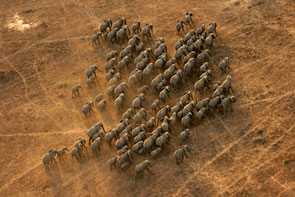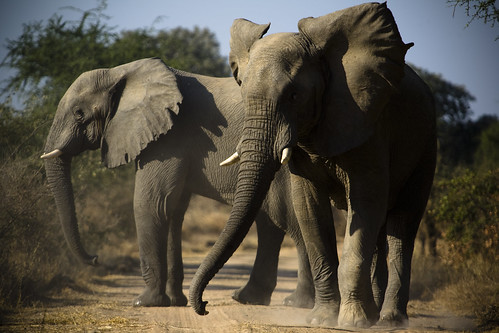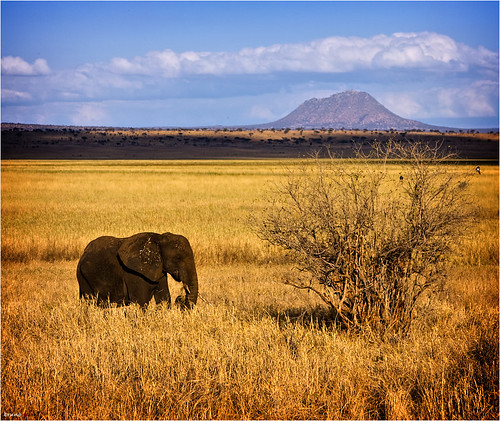In the last 20 years, the central African nation of Chad has seen a 98.5% loss of their elephant population in Zakouma National Park. Some 39,400 elephants have been lost in this short period of time, leaving Zakouma with a frighteningly small population of around 600 elephants. Broken down, this averages out to 1,970 elephants per year, about 164 per month, nearly 38 per week and about five to six per day. At this rate Zakouma National Park’s elephant population could become locally extinct within the next year. While a number of factors contribute to the decline in the global African elephant population, poaching is by far the greatest concern for the existence of the earth’s largest land mammal.
Chad’s Legendary Elephant Herds

Central Africa is home to one of the last sizeable elephant populations in all of Africa, and Zakouma National Park has held a large majority of these individuals. Elephants migrate to Zakouma during the dry season because of the plentiful water sources available there. The poaching of Chad’s elephants represents one of the most extreme cases of such activities in all of Africa as the size of the population there proves its importance.

What used to be a problem of a few individuals poaching elephants to support and feed their families has exploded into armed poaching militias running after ivory and now involves war, murder and genocide. These poachers travel by horse and camel into Chad through neighboring countries such as Cameroon, Central African Republic and Sudan where they have some of their bases. Chad is a very large country and anyone traveling by horse can easily cross the border undetected. Furthermore, Chad has a large number of transhumant nomadic tribes that dress the same way as poachers.

This makes it very difficult for Chadian armed forces and authorities to detect poachers before they kill elephants, unless local communities alert them beforehand of suspected individuals. It requests a lot of sensitization in places where elephants are destroying crops yearly and rural communities could care less if they are killed and removed from the area if it meant they could save their crops and feed their families.Poachers exploit complex elephant social behavior to maximize their poaching efforts and have used advanced technology such as GPS and Satellite phone to locate herds.

Chad’s president, Idriss Deby, has become personally concerned for Chad’s elephant population and has deployed his military to help fight for these animal’s lives. Some 70 Chadian soldiers work in teams to track down poachers and attempt to halt their activities. These guards risk everything, and many brave soldiers have lost their lives in this battle. Poachers are not willing to let anything or anyone get between them and their coveted ivory, they will do anything to protect it.

The cost of ivory has increased nearly eight-fold since 2004, easily fetching $1,000 per kilo on the black market. Thus a tusk weighing 23-34kg (51-99lbs) could be worth $2,300-$3,400 or more. Illegal ivory trade is a global problem, with China being the biggest consumer. If you think about it, 40 tons of ivory (80,000lbs) is roughly the equivalent of 4,000 dead elephants. It is not uncommon for Chad to seize several tons of ivory from poachers.

This is a serious issue that needs to be made aware of on a global scale. If action is not taken immediately Chad could close its legendary elephant herds in the next few years. Not only that but the world may soon lose one of the most majestic creatures to ever roam the earth. Stay tuned…

